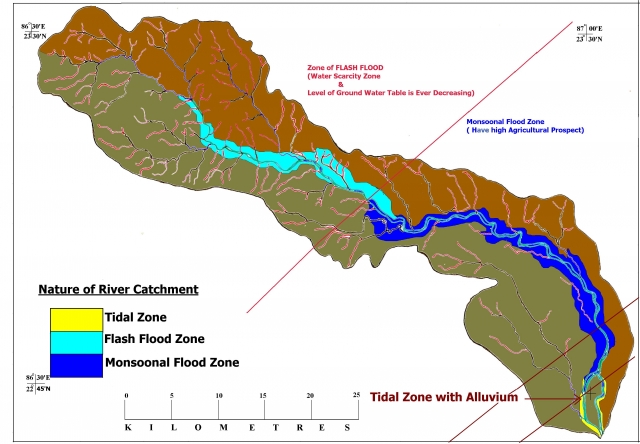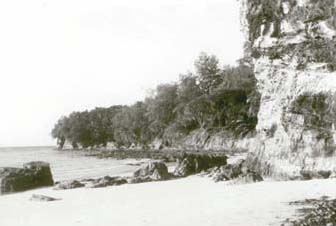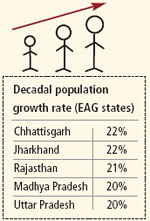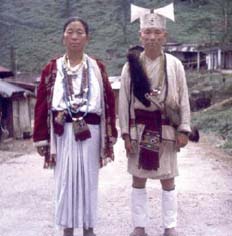/topics/governance
Governance
Dwarekeshwar river basin of West Bengal : A unique combination of flash flood zone, monsoonal flood zone & tidal zone
Posted on 27 Apr, 2011 12:59 PM In India, at national level when all the planners are saying about the water grid, river linking project, i
In India, at national level when all the planners are saying about the water grid, river linking project, i
Impact of the 2004 tsunami on the geology of Car Nicobar Island – A paper in Current Science
Posted on 25 Apr, 2011 07:17 PM The historic tsunami of 2004 in the northern Indian Ocean severely affected the eastern coastal areas of peninsular India and Andaman-Nicobar Islands.
The historic tsunami of 2004 in the northern Indian Ocean severely affected the eastern coastal areas of peninsular India and Andaman-Nicobar Islands.
Census: India, a nation of 1.21 billion - Article from Down to Earth
Posted on 25 Apr, 2011 05:30 PM
 India is the most populous nation after China (1,342 million). India hosts 17.5 per cent of the world’s population compared to China’s 19.4 per cent. Of 28 states and seven Union Territories, 20 states contribute to 98 per cent of India’s population.
India is the most populous nation after China (1,342 million). India hosts 17.5 per cent of the world’s population compared to China’s 19.4 per cent. Of 28 states and seven Union Territories, 20 states contribute to 98 per cent of India’s population.
Citizen's uprising against encroachment and pollution of Ram Nadi, an urban river in Pune, Maharashtra
Posted on 25 Apr, 2011 11:37 AMForwarded to the portal by: Parineeta Dandekar
Role of indigenous knowledge system in conservation of forest resources – A case study of the Aka tribes of Arunachal Pradesh – A paper in the Indian Journal of Traditional Knowledge
Posted on 23 Apr, 2011 09:01 PM Indigenous knowledge is the basis for local level decision making in agriculture, healthcare, food preparation, education, natural resource management, and a host of other activities in rural communities.
Indigenous knowledge is the basis for local level decision making in agriculture, healthcare, food preparation, education, natural resource management, and a host of other activities in rural communities.
The Delhi superbug debate - A mirror reflecting our own inadequacies?
Posted on 23 Apr, 2011 07:12 PMEven with its questionable merit, the superbug study has identified the need for us to question the focus that we have on finding narrow solutions to health issues .It has also highlighted the urgent need to address the broader infrastructural needs of the country such as access to safe drinking water and sanitation
Image source: Wikimedia Commons
The superbug study
New Delhi and the world was hit by panic last week because of a recent study published in the journal The Lancet Infectious Diseases , which found a high level of water contamination acquired from drains and public taps across India's capital city. The water was allegedly contaminated with superbugs, or what has been referred to as bacteria carrying the NDM 1 gene. Four percent of drinking water samples (2 of 50 samples) and 30 percent of drain samples (51 out of 171 samples) were found to be contaminated with superbugs [1, 2].
Certificate of Advanced Studies in Management of Development Projects – EPFL - Apply by 31st July, 2011
Posted on 22 Apr, 2011 06:14 PMWith more than 250 laboratories and research groups, Ecole Polytechnique Federale de Lausanne (EPFL) (Swiss Federal Institute of Technology Lausanne) is one of Europe’s most innovative and productive technology institutes.
To help professionals to adapt to today’s globalized world, situations and promote an interdisciplinary and multicultural approach to these problems, the Swiss Federal Institute of Technology (EPFL), Lausanne with the support of the Indian Institute of Science (IISc), Bangalore, is organizing a Certificate of Advanced Studies in Management of Development Projects (MaDePro) targeted at project managers, engineers, architects, social scientists and other equivalent university graduates. The program is based on three different aspects: knowledge, practice and skills.
Between the city and the salty sea - The wells of Bhuigaon, Thane, Greater Mumbai - Guest post by MS Gopal
Posted on 22 Apr, 2011 05:57 PMAs the concrete jungle of Greater Mumbai reaches Bhuigaon and overuse of groundwater sucks in the sea water, the traditional wells are under threat.
‘SACOSAN IV special issue’ - WASH news and policy update: Bi-monthly e-newsletter of India WASH Forum, Issue 17, March 2011
Posted on 22 Apr, 2011 05:31 PM- SACOSAN IV Sri Lanka
The South Asia Conference on Sanitation (SACOSAN IV) is scheduled for Sri Lanka from 4th to the 7th April in Colombo. The Conference is a unique bi-annual inter-ministerial meeting that has an exclusive focus on sanitation and hygiene in south Asia.





